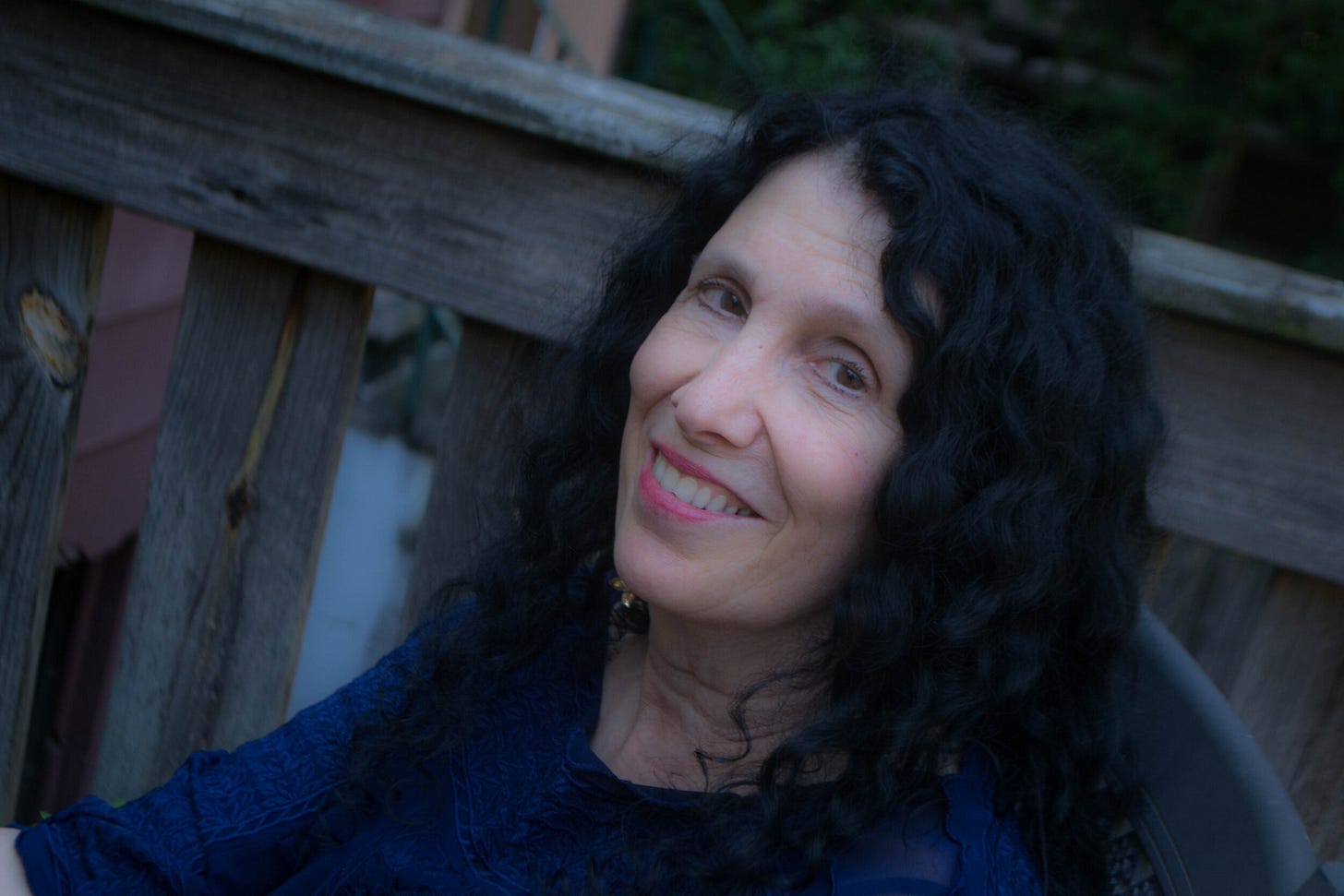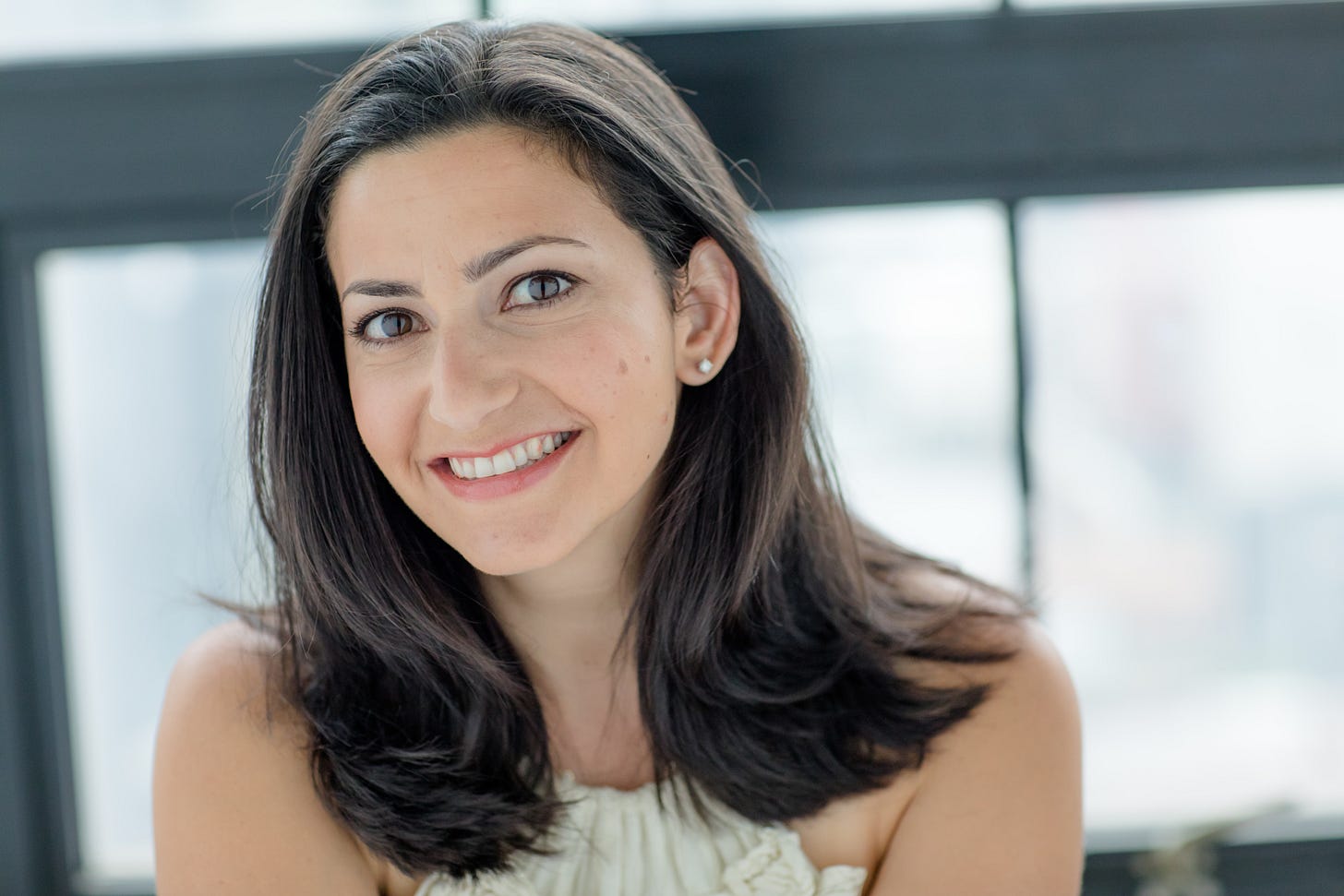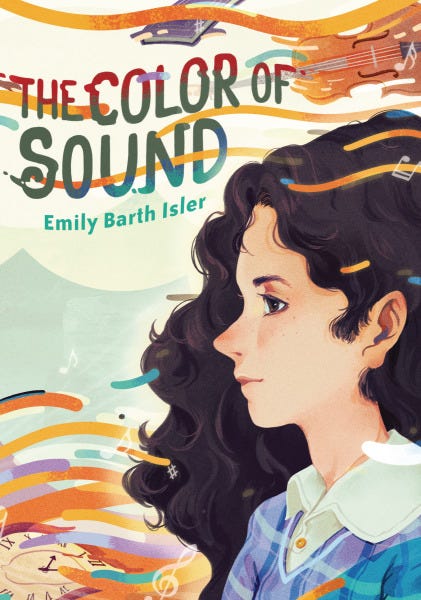✨A Mighty Blaze's Caroline Leavitt on not letting rejection get to you✨
Plus, Emily Barth Isler shares incredible insights on writing for kids to inspire the next generation's activists, and our hosts answer all your questions in our monthly Q&A video!
Happy Friday, all you wonderful 💩 heads !
Anyone know where the heck April went? 😅 She packed her bags mighty quickly, so our money’s on either a fabulous pitching event or a far-flung writing conference.
In this week’s episode, Carly, CeCe, and Bianca critique two query letters while discussing an example of a great inciting incident. Bianca then interviews Caroline Leavitt, award-winning author and co-founder of A Mighty Blaze, to discuss Caroline’s latest novel, Days of Wonder, as well as everything she’s learned about good literary citizenship. Emily Barth Isler’s must-read article examines writing for kids while planting seeds of activism. Finally, we answer all your questions in a video where you get to see our hosts’ range of goofy expressions rather than just listening to their voices 😍
As usual, we are continuing our TSNOTYAW Membership Program so you can get even more The Shit No One Tells You About Writing goodness! Our podcast episodes and Friday newsletter issues will continue to go out free of charge (we *love* sharing all this amazing content with writers like you). But as TSNOTYAW has grown, so too have the many, many hours our team pours into it, and in order to be able to keep showing up for our lovely listeners, we decided to launch this exciting new venture.
For just $8USD a month or $80USD a year, you can receive our paid newsletter on Tuesdays which features weekly bonus author Q&As, exclusive content from industry experts, weekly access to Carly Watters and CeCe Lyra’s written notes on queries from the podcast’s Books With Hooks feature, monthly bonus podcast episodes, AND regular Ask Me Anythings / Q&As with Carly, CeCe, and Bianca Marais. If that doesn’t kickstart your writing journey, we don’t know what will!
Thanks for reading ❤️
The Shit No One Tells You About Writing Team
This Week’s Podcast✨🎙️✨
In this week’s 📕Books with Hooks🪝, Bianca, Carly, and CeCe critique two listener queries, a resubmission and a YA fantasy. They discuss:
The issues with starting with a protagonist that has a 'simple, stable' life
A great example of an inciting incident
Ensuring your major dramatic question is strong enough
Good storytelling as the promise of change
Making your protagonist the 'sun' of your story
Infusing emotion into the information you provide
Ensuring that your plot feels like a set of dominos tipping over
Taglines in a query
Differentiating your novel's tropes from how they're used in other novels in your genre, and
Making characters' motivations clear in a query
After which, Bianca interviews award-winning author, Caroline Leavitt. They discuss:
A Mighty Blaze and its origins
Being a good literary citizen
Caroline's key to longevity in the industry
Not letting rejections get to you
Avoiding writing to the current market
Caroline's latest novel, Days of Wonder
Her research process
Using universal personal experiences that help connect your readers to your characters
Caroline's reasoning for the settings she chose
How she approaches characterization, and
Her thoughts on genre
More information about Caroline can be found here. She's also on Twitter at and Instagram.
You can purchase Days of Wonder on our Bookshop.org affiliate page here. Buying books through this link supports a local indie bookstore, as well as The Shit No One Tells You About Writing 📚❤️
Writing for kids (and their grownups!) with activism in mind
By: Emily Barth Isler
I’ve heard that the phrase “with great power comes great responsibility” is from some comic book or something (it’s actually an older proverb that was popularized by Stan Lee’s Spider-Man, later used by everyone from the US Supreme Court to writers like me trying to start off with a pop-culture bang!), and nowhere does it feel more true than the immense privilege that is writing books for kids and the grownups who love them.
I am a firm believer that kids want—and need!—books that are “just for fun.” They need silly toilet humor and adventures with dragons and, later, romances and explorations of love and heartbreak, just as much as they need books about “hard things.” They deserve books that don’t overtly preach or teach, that provide escape from the real world or a peek into others (windows, mirrors, etc).
AND. Not but, but and: they also need, deserve, and, studies have shown us, LOVE books that are more transparently issue-based or that deal with big feelings, big problems, and big current events.
I’ve been given a lot of conflicting advice over my 15-year career writing for young people. “Write from the headlines,” my first agent told me. “Write something fun,” said another I later queried. “Write what you know,” says, well, everybody. And honestly, I try to do all three, often at the same time.
My first published book-- the third full manuscript I’d completed and had sent out via agents-- is what I would have called the book of my heart before I realized that every book I write is the book of at least a piece of my heart. That, like as a mother of multiple children, I will most certainly love each of my books with my whole being, if in a slightly different way. But suffice to say, that first/third book was a HARD sell because it deals with a topic that, when we first queried it in 2016, no one in middle grade KidLit wanted to talk about: school shootings.
AfterMath, is a story about an outsider-- a girl named Lucy who, after the tragic but very much expected loss of her younger brother to a congenital heart condition, moves to a town where her new seventh grade classmates are all survivors of a school shooting that happened four years earlier-- and how she must navigate her entrance into this unique ecosystem of survivors and traumas and memories that she feels she cannot relate to. Lucy is a math whiz and sees everything, even her relationship with her new peers, as an equation or number or shape, and of course she cannot help but mathematically compare her loss to theirs-- their sudden, traumatic, haunting losses due to gun violence. In contrast to Lucy’s loss-- horrifically sad but with so much time to “prepare” and think about, that Lucy feels that while “[g]oing to their school puts [her] on the same axis... [she’s] not in a position to create a straight line with them.”
I had put two previous novels before this one into drawers; novels I had loved and revised and sent out with agents and revised again. Novels I thought were books of my heart, novels I was sure were meant to be published. It would have been logical to do this with AfterMath, too, once we’d had a few absolutely heartbreaking close-call rejections. What was different about AfterMath, though, was the component of it that felt to me like my “great responsibility” that came with the great power of potentially publishing a book.
My whole life before writing this book, I had identified as an activist in the fight to end gun violence in America through common sense legislation, but up until this point, I had not known exactly how I-- yet another Mom Demanding Action-- could contribute in a unique and meaningful way. In the writing of AfterMath, and even more so in my perseverance of seeing it through to traditional publication, I found a way I wanted to participate in this cause I cared about so deeply. Thus, the idea of blending my own activism and my writing blossomed.
By the time the book was published by Carolrhoda/Lerner Book Group in 2021, we had seen so many more mass shootings and school shootings in America, and the students of Parkland, Florida and Santa Fe, Texas and Santa Clarita, California, and many more places had begun to spark more conversation around the topic. I collaborated with gun violence prevention organizations to donate proceeds from the sale of the book to their causes, to raise awareness and start hard conversations. I heard from students who felt seen and teachers who were grateful for the book as an entry point to discussions when they didn’t know what to say. This experience has fueled my drive to infuse at least some of my books with activism that is meaningful to me.
My second middle grade novel, The Color of Sound, came out in March of this year. My experience with the privilege of using my “platform” to share some of the values and details of my activism made me want to write about more topics that are important to me and also under-discussed or underrepresented in kidlit. In addition to featuring a Jewish main character, as all of my books do/will because I am a Jewish author, The Color of Sound features a main character with synesthesia, a neurodivergence that many people do not know a lot about. Synesthesia is, as per Wikipedia’s helpful definition, “a perceptual phenomenon in which stimulation of one sensory or cognitive pathway leads to involuntary experiences in a second sensory or cognitive pathway. For instance, people with synesthesia may experience colors when listening to music, see shapes when smelling certain scents, or perceive tastes when looking at words.” It is a neurodivergent experience under the same umbrella of brain differences like ADHD, Autism, and OCD, for example.
I think that without the overwhelmingly positive experience of writing about gun violence and the need for legislation to end it, I might not have had the courage-- or even the inspiration-- to write about this particular neurodivergent condition. I, myself, have synesthesia, and didn’t realize I did until I was in my thirties, because it’s a phenomenon that hasn’t been widely written about for kids. My hope is to raise awareness around all forms of neurodiversity, and to encourage readers’ awareness around all of the highs and lows of growing up with a brain that isn’t considered “typical". Though often seen as a gift, the experience of having synesthesia can be isolating and overwhelming to some, especially when kids feel pressure to be like everyone else.
This kind of activism is different-- and less divisive-- than the work I did with AfterMath (and the gun violence prevention work I continue to do.) But still, I find that any time I choose to write about something that feels important to me and is perhaps new or controversial to others, I know it will come with the extra responsibility of educating and explaining outside of the manuscript. Several people have told me that they were hesitant to read a book about a main character with synesthesia, simply because they didn’t know what it was! I explain that that’s exactly WHY I wrote the book-- because even some people who have synesthesia don’t know what it is or that they have it-- and encourage people to get comfortable reading about topics that may feel unfamiliar or new. That is, after all, why books are so magical. The synesthesia experience portrayed in The Color of Sound is very real, but it also works beautifully as a metaphor for the ways that multiple humans living in this same world might have the same experience, but perceive it in completely different ways. I hope that readers who are neurodivergent feel seen when reading it, and that those who are neurotypical develop more understanding and empathy through it.
I also have written picture books (coming out in 2026 and beyond!) that deal with issues from scarcity and abundance in large families to Kristallnacht, and from Jewish identity to fluid gender expression! (Not all in one picture book! Yikes!) I hope that my books inspire others to write about the things people aren’t talking about enough. Representation itself is activism, and I am proud to incorporate both into my writing.
Emily Barth Isler is the author of AfterMath, an award-winning middle grade novel about grief, resilience, friendship, math, and mime. Comedian and activist Amy Schumer calls AfterMath "A gift to the culture," and author Judith Viorst pronounced it "pretty close to perfect." Emily's next book, The Color of Sound features a character who, like Emily, has synesthesia, and was published March 5, 2024. It has received starred reviews from both Publishers Weekly and School Library Journal . In 2026, her first picture book, Always Enough Love, will be published by Nancy Paulsen Books.
Emily writes regularly about sustainability, organic/eco-friendly skincare, and healthy beauty products for Oprah Daily, Allure, Organic Spa, etc. Her recent feature for Oprah Quarterly Magazine, What "Clean Beauty" Means Now, investigates the science and ethics of sustainability, consumption and beauty.
A passionate advocate for gun control in America, Emily has written extensively on the topic for publications like Publisher's Weekly, Today.com and Kveller.com, as well as donating a portion of proceeds from her debut novel, AfterMath, to gun violence prevention organizations such as Everytown, Moms Demand, Teachers Unify, Survivors Empowered, and March for our Lives.
AfterMath was chosen as a Nate's Reads bookclub pick by Nate Berkus, a Mighty Girl's Books of the Year winner for 2021, and won the Mathical Book Prize in 2022.
She has a BA in Film Studies from Wesleyan University and lives in Los Angeles with her husband and their two children.
You can purchase The Color of Sound on our Bookshop.org affiliate page here.
Writing memoir? 😍🌟
Join Bianca on the 11th of May from 10am-5pm ET as she hosts a one-day virtual retreat specifically for memoirists!
Speakers include:
Catherine Gildiner – Author of Too Close to the Falls, After the Falls, Coming Ashore and Good Morning, Monster: Five Heroic Journeys to Recovery.
Chelsea Devantez - Emmy-nominated writer, comedian, and filmmaker. Author of the upcoming memoir, I Shouldn't Be Telling You This (But I'm Going to Anyway).
Courtney Maum - Author of five books, including the game changing publishing guide, Before and After the Book Deal, and the memoir, The Year of the Horses.
Bonny Reichert – Award-winning journalist, chef, and author of the upcoming memoir, How to Share an Egg: A True Story of Hunger, Love and Plenty.
Abby Maslin – Bestselling author of the memoir, Love You Hard, and a contributing essayist in Moms Don’t Have Time to Have Kids.
Ronit Plank - Award-winning writer, teacher, and podcaster who hosts Let's Talk Memoir. Author of the memoir, When She Comes Back.
Each 40-minute session will be followed by a 20-minute Q & A in which delegates get to ask the presenters all their burning questions.
The retreat will be taped, and the recording will be sent out the next day.
The registration fee is US $ 149.00
For more information and to register, click below!
April Q&A with our hosts 🌟
We answer all your burning publishing and writing questions including how to hit the word count sweet spot and what ‘upmarket’ means.
Be part of Carly’s masterclass 😍📝
Have you heard?! Carly’s new course is available! If you didn’t bag the early bird pricing, Substack subscribers can claim it now with a discount for the month of April! Use code SUBSTACK15.
Plant Magic by Desiree Nielsen is out now! 🎉 Erica is one of Carly’s fabulous clients, so why not show Erica your support and enjoy some delicious, plant-based meals at the same time! Order through our Bookshop.org affiliate page!
That’s all for this week’s news! If you enjoyed it, why not share the love? 🥰
Until next week, happy writing! Tune in again then for more invaluable wisdom from our wonderful hosts! 😍
❤️ The Shit No One Tells You About Writing Team
Our work takes place on land now known as Toronto and Ottawa and we acknowledge that these are the traditional territories of the Mississaugas of the Credit, the Anishnabeg, the Chippewa, the Haudenosaunee, and the Wendat Peoples as well as the unceded, unsurrendered territory of the Anishinaabe Algonquin Nation. Toronto is covered under Treaty 13 and the Williams Treaties. We respect and affirm the inherent and Treaty Rights of all Indigenous Peoples across this land and acknowledge the historical oppression of lands, cultures, languages, and the original Peoples in what we now know as Canada. We invite you to learn more about the land you inhabit, the history of that land, and how to actively be part of a better future going forward together at Native Land or Whose Land.
Carly Watters and CeCe Lyra are literary agents at P.S. Literary Agency, but their work in this newsletter is not affiliated with the agency, and the views expressed by Carly and CeCe in this newsletter are solely that of themselves and do not necessarily reflect the views, opinions, policies, or position of P.S. Literary Agency.












Hi team a question from your curmudgeon: Do agents really "need" new writers? And if they did couldn't they get fifty manuscripts in about fifteen minutes? Thanks
Thank you for answering my question!!